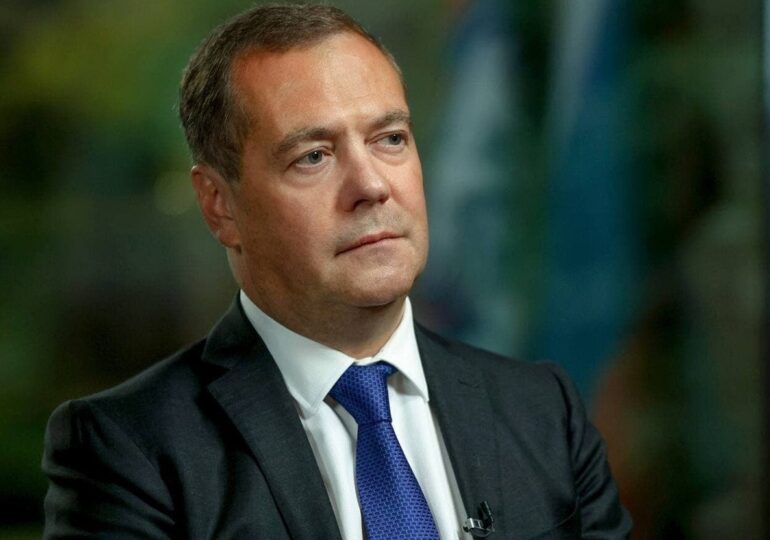Just a few years ago, he was considered a liberal reformer in the Kremlin. However, since the beginning of the invasion of Ukraine, former Russian President Dmitry Medvedev has stood out with his provocative statements, which have ended up angering Donald Trump.
Is it a way to stay in the spotlight, an expression of a hard line within the Russian elite, or a means through which Moscow provokes the West with scandalous public statements while maintaining classic diplomatic channels? AFP wonders.
On his Telegram and X accounts, the former head of state (2008-2012) and prime minister (2012-2020) has adopted a very offensive attitude since the launch of the Russian invasion of Ukraine at the beginning of 2022.
Far from his past image as a reformist leader passionate about new technologies, Medvedev uses vulgar epithets for Ukrainian President Volodymyr Zelenskyy, mocks a supposed decline of Europeans, and regularly evokes the specter of a devastating nuclear war with the West.
His messages generally have a limited echo, reflecting his now restricted influence in Russia, where Dmitry Medvedev remains vice president of the Security Council. However, his statements have ended up irritating the President of the United States, who, unlike the measured tone used with Vladimir Putin, has vehemently attacked him.
Trump's Anger
The escalation took a dramatic turn on Friday when Donald Trump wrote on Truth Social that he "ordered for two nuclear submarines to be positioned in appropriate areas, in case these "idiotic and inflammatory statements are more serious than they appear."
He then explained to journalists that he reacted this way because the former Russian leader, who will turn 60 in September, himself threatened with nuclear weapons.
After the initial exchanges via social media, Medvedev harshly criticized Trump and referred to the "famous dead hand," an allusion to an ultra-secret automated system created by the Soviet Union during the Cold War to take control of the nuclear arsenal in case the chain of command is destroyed.
The Battle Between Two Clans
Born in Leningrad (now St. Petersburg), like Vladimir Putin, Medvedev spent his entire career in the shadow of his mentor. But this lawyer by training, considered one of the leaders of the "liberal" wing of Putinism, was marginalized by the rise of the rival "siloviki" (military and security services) clan.
In the 1990s, he joined the Foreign Relations Committee of the municipality, then led by Putin, and took him to Moscow in 1999. Elected head of state in 2000, Vladimir Putin soon appointed Medvedev as head of the presidential administration, then, in 2005, as deputy prime minister.
Dmitry Medvedev was elected president in 2008, as Putin could not serve more than two consecutive terms. However, in a move described as a simple "rotation," Vladimir Putin became prime minister before taking back the reins of power in 2012.
As president, Dmitry Medvedev displayed in 2010 a closeness to his American counterpart Barack Obama and a desire to rekindle relations with the United States.
Linkin Park Fan and Visitor to Silicon Valley
A rock lover and a declared fan of the American band Linkin Park, Medvedev cultivated a modern image at that time - during a visit to Silicon Valley, Apple founder Steve Jobs presented him with an iPhone, and Medvedev opened his Twitter account right from the company's headquarters.
In international politics, this closeness translated into Russia's simple abstention, instead of a veto, in the vote on a resolution regarding Libya at the UN Security Council in 2011. This decision, which allowed NATO to launch the military intervention that led to Gaddafi's overthrow, drew Vladimir Putin's disapproval.
After Vladimir Putin's return to the Kremlin in 2012, Medvedev became prime minister but gradually withdrew, being reduced to technical issues and attracting dissatisfaction from Russians due to economic difficulties.
Ultimately, he was dismissed in early 2020 and is now mainly present in the public space through his provocative messages.

